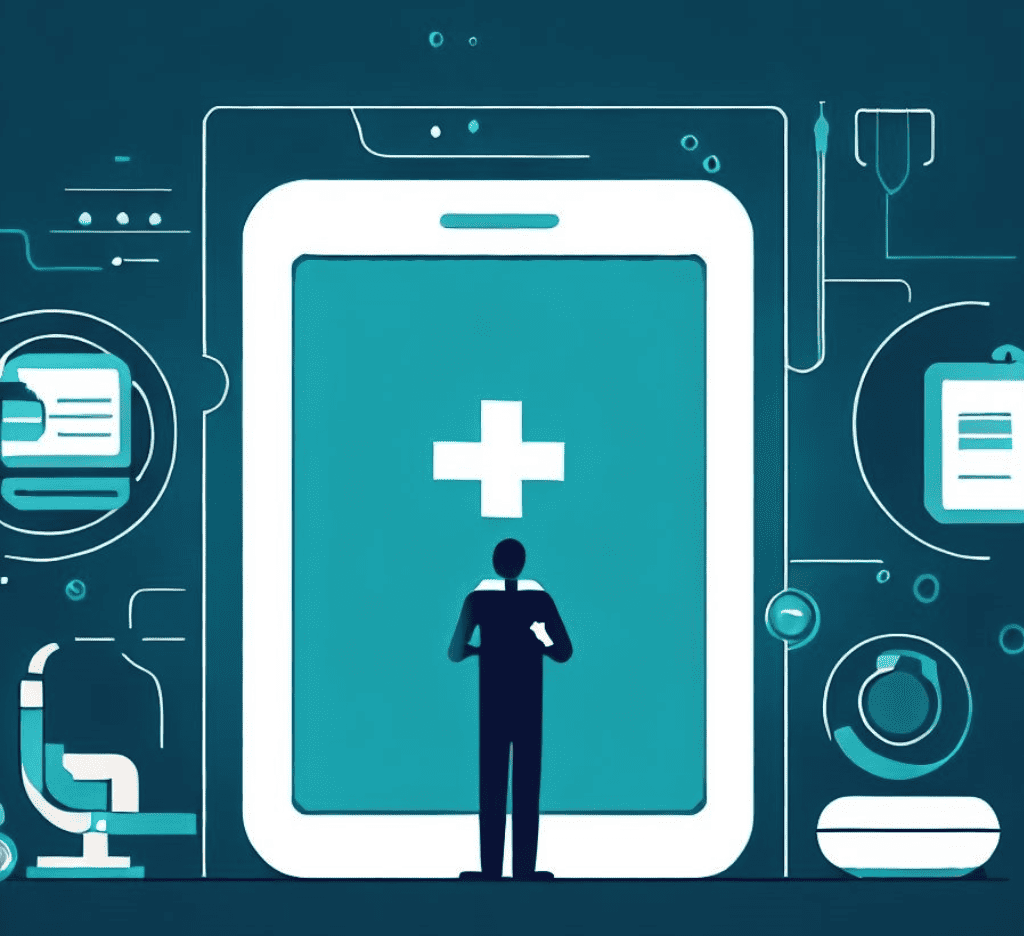The life sciences industry leverages various software solutions to provide better patient care, streamline operations, and enhance medical research. It’s more critical than ever to delve into the vital roles played by software in the healthcare industry. In today’s post, we will unravel the intricacies surrounding the software solutions intended to make waves in the healthcare sector in 2024.
Understanding the Software Landscape in Healthcare
What Software Does the Healthcare Industry Use?
From the local doctor’s office to large hospital networks, the reliance on various software has become undeniable. The healthcare industry employs an array of software solutions ranging from Electronic Health Records (EHRs) to telemedicine platforms, facilitating smoother and more efficient operations.
How is Software Used in the Medical Field?
Integrating software in the medical field has revamped the entire landscape and is part of current standards of care and healthcare provider communication with their patients. Medical professionals use software to track patient histories, manage appointments, conduct remote consultations, and even perform complex analyses to arrive at accurate diagnoses.
These behaviors dramatically accelerated during the pandemic, and many have become routine in patient care. At the heart of successful patient and healthcare provider interactions via digital means are software applications that aid in administrative tasks, data management, and financial operations, making the healthcare ecosystem more coherent and interconnected.
What is Healthcare Software Called?
In the broad spectrum of the healthcare industry, various software solutions go by different names depending on their functionalities. Common categories include:
- Electronic Health Records (EHRs): These digital versions of patients’ paper charts provide real-time and patient-centered records.
- Practice Management Software: This software helps in the day-to-day operations of medical practices, handling tasks like billing, scheduling, and administrative functions.
- Laboratory Information Systems (LIS): This type of software manages samples, associated data, and laboratory users.
- Radiology Information Systems (RIS): Software used to manage patient data and imagery, particularly in radiology.
- Telemedicine Software: Facilitates remote consultations, allowing doctors to consult with patients from virtually anywhere.
Now that we’ve laid the groundwork let’s dive deeper into the five types of software that have become indispensable in today’s healthcare sector.
The Quintessential Quintet: Software Steering the Healthcare Industry
- Electronic Health Records (EHRs): EHRs have undoubtedly become the backbone of modern healthcare settings. These systems not only streamline the documentation process but also facilitate easy access to patient data, enhancing the coordination of care and improving outcomes.
- Telemedicine Software: Telemedicine has emerged as a game-changer in a world continually leaning towards digitization. It has expanded the reach of healthcare services, making it possible to consult with specialists from the comfort of one’s home. This feature has been particularly beneficial in the ongoing pandemic era.
- Predictive Analytics Software: This is where the power of data science comes into play. Predictive analytics software utilizes historical data to forecast trends, optimize operations, and even predict potential health issues before they become critical, paving the way for preventative medicine.
- Interoperable Systems: Interoperable systems facilitate seamless communication between different software applications within the healthcare sector. This integration ensures that data can be shared effortlessly across various platforms, enhancing collaboration and efficiency.
- Artificial Intelligence (AI) and Machine Learning (ML) Software: AI and ML have brought about revolutionary changes in healthcare, assisting in everything from diagnostic procedures to personalized treatment plans. These technologies can analyze massive datasets to provide insights and aid in medical research, pushing the boundaries of what’s possible in healthcare.
Peering into the Future: The 2024 Horizon in Healthcare Software
As we stand on the threshold of 2024, the healthcare sector is brimming with anticipation. Industry insiders and enthusiasts alike are eagerly eyeing the transformative potential of what’s just around the corner. Allow me to walk you through some of the exhilarating developments we expect to see in software in the healthcare industry in 2024.
Virtual Reality (VR) and Augmented Reality (AR) in Medical Training
In 2024, we can expect to witness a massive leap in implementing VR and AR technologies in medical training. These immersive technologies will scale to transport medical students and professionals into realistic, virtual hospitals where they can practice their skills in risk-free environments, enhancing their learning experience.
AI-Powered Predictive Analytics
AI is about to take predictive analytics to a whole new level. The coming year promises to deliver AI systems capable of analyzing colossal datasets with even more precision. This enhancement will pave the way for more accurate predictive diagnostics, helping to prevent diseases before they manifest and crafting personalized treatment plans like never before.
Blockchain for Secure and Transparent Data Transactions
2024 is gearing up to be the year blockchain technology becomes a mainstay in the healthcare sector. Offering a secure and transparent method to handle sensitive healthcare data, we expect blockchain to revolutionize how we manage and share information, bringing about a new era of data security and trust in the healthcare industry.
Remote Monitoring and Telehealth Advancements
As we venture into 2024, the telehealth sphere will undergo remarkable enhancements. Integrating IoT with healthcare software means that remote monitoring of patients is not only going to be more efficient but also more intuitive. Imagine doctors having real-time access to patient data, monitoring vital signs, and adjusting treatment plans instantaneously, without geographical constraints. The future is truly here!
Integration of Genomics and Personalized Medicine
Genomics and personalized medicine will have a stronger correlation in 2024. Healthcare software will begin integrating genomic data, assisting healthcare providers in devising treatment plans tailored to an individual’s genetic makeup. This step will usher in a new era of personalized healthcare, where treatments are as unique as those receiving them.
Wrapping Up
As we navigate through 2023, the role of software in the healthcare industry is more prominent than ever. From providing seamless patient experiences to aiding groundbreaking research, these software tools have become the pillars of the modern healthcare industry.
As we gear up to step into 2024, the forecast for the healthcare sector looks nothing short of revolutionary. The advancements in software in the healthcare industry are poised to transform medical practices and empower individuals to manage their health actively.
As we keep pace with these rapid developments, it’s evident that we are on the cusp of witnessing a healthcare revolution fueled by technology and innovation. Here’s to a future where healthcare is not just advanced but also more accessible and personalized.
Join Unosquare as we continue to explore this fascinating journey into the future of healthcare. The year 2024 promises to be an exhilarating ride, and we couldn’t be more excited to traverse this path alongside you! Cheers to a future brimming with innovation and boundless possibilities!

